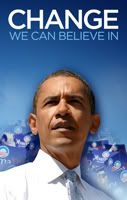Unlike some of the other bills discussed since the start of this session, North Texans voted on this issue along nearly straight party lines.
On a 315-116 roll call Wednesday, the House voted to increase the federal minimum wage from $5.15 to $7.25 an hour over 26 months.
Voted Yes (in favor of a minimum wage increase)
Chet Edwards, D-Waco
Eddie Bernice Johnson, D-Dallas
Kenny Marchant, R-Coppell (Ed. note: the Star-Telegram article wrongly lists Rep. Marchant as voting against the legislation, while the official record has him voting in favor.)
Joe Barton, R-Ennis
Michael Burgess, R-Flower Mound
Ralph Hall, R-Rockwall
Jeb Hensarling, R-Dallas
Sam Johnson, R-Plano
Pete Sessions, R-Dallas
Kay Granger, R-Fort Worth
So it may surprise you that your Republican congressmen and women would fail to see the benefit of raising the minimum wage standard. It shouldn't. Republicans not only fail to see the need for a raise, they fail to see the need for a minimum wage at all. Here's the quote from the Texas GOP party platform.
We believe the Minimum Wage Law should be repealed and that wages should be determined by the free market conditions prevalent in each individual market. [page 25, 2006 State Republican Party Platform]
"the kind of cynical ploy that makes Americans lose faith in their government."
This year, the rationale was that a minimum wage increase must be coupled, in the same bill, with tax breaks for small businesses.
Rep. Jeb Hensarling, R-Dallas, chairman of the Republican Study Committee, said "lucky" workers would see their pay rise to $7.25 an hour, but he predicted that many more will have their hours or benefits cut or lose their jobs.
"In America we can either have maximum opportunity or we can have minimum wages. We cannot have both...."
Some observers contend that because many small businesses are labor intensive and largely employ low-wage workers, they will experience sharp cost increases when the minimum wage is increased, leading them to reduce employment levels. However, this report examined recent state-by-state trends for small businesses employing fewer than 50 workes and found that employment and payrolls in small businesses grew faster in the states with iminimum wages above the federal level than in the remaining states where the $5.15 an hour federal minimum wage prevailed.
This report also found that total job growth was faster in the higher minimum wage states. Faster job growth also occurred in the retail trade sector, the sector of the economy employing the most workes at low wages, in the higher minimum wage states.
The simplest introductory economics prediction that an increase in the minimum wage will result in job loss clearly is not supported by the actual job growth record. Rather, faced with an increase in the minimum wage, small businesses may have benefited from some combination of higher productivity through improved worker retention and savings on recruitment and training. There may also be a "Henry Ford" effect at work: if you pay workers more, they can buy more, boosting the overall economy, especially among small retail businesses.







No comments:
Post a Comment